
by Marcia Davis-Dawkins | May 15, 2019 | Education, Kids, Parents, Teachers
Speak the Truth

By Dr. Marcia Davis-Dawkins
During the month of May we celebrate children, we appreciate teachers, school nurses, Mothers’ Day, and Memorial Day. In addition, May is an important month for me because it is my mother’s and one of my brother’s birthdays. I thought that because children are our future it would be fitting to write about children.
One of my fondest activities in 3rd Grade (Elementary School) was when I was learning to write cursive. This was exciting because, not only was I learning a new skill, but I was also writing and learning new gems or poems. They were meaningful and have stuck with me throughout my life. So much so, that I have used them many times in my writings and even have them posted in my classroom/s. One of these, I don’t know the author and have even tried to Google it, but to no avail. So I hope I will be forgiven for not giving the credits to the author. Here it goes:
Speak the truth and speak it ever.
Cost it what it will.
For he who hides the wrong he did.
Does the wrong thing still.
In my classroom where I have that treasure posted, it always seems to spark a conversation with my students. After reading it (even those who struggle to read), they usually ask questions including: “What does it mean?” “Why do people lie?” “Why do put you it (the poem) there (in the classroom)?” “What does ‘Does the wrong thing still’ mean?” The discussions usually include that lying is not a good thing and once we begin lying, we cannot seem to stop, or that lying is difficult because you will always have to remember what the first lie was, so your story is kept straight.
Because I have had many students over the years, various questions and discussions have arisen. Some of them have been thought provoking as well. A recurring one seems to be that we can misrepresent the truth just a little bit so that we won’t get in trouble or look bad in other people’s eyes. Of course as humans, most of us want the truth to be camouflaged simply because we might not want to be controlled or judged by others. As a little girl, I was always told that once you start with one small lie, it will lead to a bigger one, still a bigger and eventually could lead to stealing, then jail time. Essentially, it is best not to lie because there are consequences to lying and telling the truth will be better than lying. If you tell the truth, “the truth sets you free” and brings peace of mind, since you don’t have to try to worry or remember what you told someone previously about the same topic. Plus, it also means that if you are caught lying once, then people might not trust you another time. If you are not trustworthy, then there is no respect for the liar. In other words, they might think you are lying even when you are telling the truth. Is it worth it to lie? The truth will help you grow stronger because you can learn from the mistakes you make and not constantly lie or avoid the truth. Speaking the truth is part of my core foundational value and was taught early on in my toddler years by my mother and those who were responsible for my upbringing, including teachers. There is value in knowing that I can be trusted – it boosts my integrity for life! Another quote sums up telling the truth best, “The truth doesn’t cost anything, but a lie could cost you everything.”
 Since one of the many hats that we wear as educators is to actually teach, I say posting certain quotes in our classroom can evoke certain teachable moments. One of my goals continues to be spreading a key foundational core value by encouraging students to speak the truth and speak it ever. In a world where being deceptive sometimes rears it ugly head, it is best that we help students to carry a moral standard of speaking the truth all the time.
Since one of the many hats that we wear as educators is to actually teach, I say posting certain quotes in our classroom can evoke certain teachable moments. One of my goals continues to be spreading a key foundational core value by encouraging students to speak the truth and speak it ever. In a world where being deceptive sometimes rears it ugly head, it is best that we help students to carry a moral standard of speaking the truth all the time.
The Power of Words

by Marcia Davis-Dawkins | Apr 29, 2019 | Education, Kids, Parents, Teachers, Teens
Chasing Windmills

By Dr. Marcia Davis-Dawkins
I have often reminded myself that nothing happens in life without a reason and even when it seems odd at the time, later on in life as you are given a chance to think of the lesson/s learned from an encounter, the significance hits you when you have more wisdom and experience. Recently I decided to take a nature walk  and take care of my body on Earth Day. Whether you might see this has a mere coincidence or not, things just seemed to roll into place and as I walked and talked with a friend, and I realized that again, “nothing happens without a reason.” This time the friend encouraged me to watch a movie, which I promised to watch and I was true to my word. The movie entitled the The Boy Who Harnessed the Wind is based on the novel of that title, in which the protagonist and narrator, William Kamkwamba, are one and the same. In his memoir, a young Malawian man grows up in the rural village of Wimbe during the 2000 famines in Malawi. William has an incredible aptitude for science and engineering, though he is unable to stay in school due to a lack of funds. Self-motivated and resourceful, he finds books in his local library that allow him to learn about physics, electricity, and laborsaving inventions on his own. With the help of his friends, Gilbert and Geoffrey, William then builds a windmill so that his family can have free electricity that is not controlled by government blackouts. The windmill earns William the support of a Malawian professor, who helps William gain scholarships to school and a fellowship with TED Global that puts William in contact with other innovators and entrepreneurs across not the African continent, but the world. William embodies the values of hard-work, education, and helping others, maintaining an optimistic outlook on everything, despite the many troubles described in the book.
and take care of my body on Earth Day. Whether you might see this has a mere coincidence or not, things just seemed to roll into place and as I walked and talked with a friend, and I realized that again, “nothing happens without a reason.” This time the friend encouraged me to watch a movie, which I promised to watch and I was true to my word. The movie entitled the The Boy Who Harnessed the Wind is based on the novel of that title, in which the protagonist and narrator, William Kamkwamba, are one and the same. In his memoir, a young Malawian man grows up in the rural village of Wimbe during the 2000 famines in Malawi. William has an incredible aptitude for science and engineering, though he is unable to stay in school due to a lack of funds. Self-motivated and resourceful, he finds books in his local library that allow him to learn about physics, electricity, and laborsaving inventions on his own. With the help of his friends, Gilbert and Geoffrey, William then builds a windmill so that his family can have free electricity that is not controlled by government blackouts. The windmill earns William the support of a Malawian professor, who helps William gain scholarships to school and a fellowship with TED Global that puts William in contact with other innovators and entrepreneurs across not the African continent, but the world. William embodies the values of hard-work, education, and helping others, maintaining an optimistic outlook on everything, despite the many troubles described in the book.
After I watched the movie I thought about how inspirational it was and especially because it was educational based, I couldn’t help but wonder how much influence we are as educators to help students live out their dreams. In the story, William’s father didn’t think he was capable of making the windmill even though he had made a “mock model” of it. His father thought it was simply a toy and when William asked for the use of his father’s bike to help to make the windmill, William was told to go help him in the field and to stop chasing a dream that would essentially take him nowhere. In essence, he sent him on his way and said he was wasting his time.
The school system also didn’t believe in William and had suspended him from school because his family was unable to pay his school fee. One of the things that resonated with me after watching the movie was how much some of our students take going to school for granted. Some of the students aren’t even aware of the fact that in some parts of the United States, or other parts of the world, because of poverty or other socioeconomic issues students/children aren’t able to attend school. Yet, they have the opportunities and are often wasting their time and energy. Then again, are they aware of how others in history fought to get them the opportunity to attend school? It also begs the question, are we teaching students their history? It is easy to say that it is not the educators’ job to teach the students their history, but to place it in the hands of their parents, but are the parents aware or are they qualified to do so? Yes, I know we have to wear many hats, but as we try to educate the whole student, I firmly believe that this is part of our charge. I also say that if we don’t know enough about the topic for instance, then we could read more about it so we can share. Essentially, since we are supposed to be life- long learners, then we can learn as we teach – which in turn, can make our teaching fresh.
In the book, William said and I quote, “I’m ashamed to see this school broken in such fashion. We should tear the whole place down and start from scratch, build it again strong and proud! Teachers’ houses also need to be shipshape, and students need new desks and books!”
The aforementioned book reminded me of another somewhat similar story, Don Quixote written in the late 16th century. In that selection, the character of Quixote is a 50ish rather myopic man, seemingly deranged and obsessed with tales of knighthood, fantasy and chivalry. He battles illusory monsters, which are actually windmills. The stories are comparable in that perception is everything. The way we see the world is how it shall be. Both main characters accomplished what they set out to do because they believed that they could! If we choose to see good, there will be good. Great changes in life don’t happen by settling for what is in front of us. They happen by looking at the world in unique ways.
 It sent home another message that I had read from Hebrews 13:16, (NIV) “Do not neglect to do good and to share what you have, for such sacrifices are pleasing to God.” This further encouraged me to put into action my dream of helping students from my homeland Jamaica, who are less fortunate and very talented, and would also appreciate the extra assistance to push them further so they can run with their dreams, go on and, who knows, maybe build windmills like William. Give the students an opportunity to, as they say, “Chase windmills,” the glorious journey of chasing ideas bigger than themselves and remaining optimistic in the face of cynicism!
It sent home another message that I had read from Hebrews 13:16, (NIV) “Do not neglect to do good and to share what you have, for such sacrifices are pleasing to God.” This further encouraged me to put into action my dream of helping students from my homeland Jamaica, who are less fortunate and very talented, and would also appreciate the extra assistance to push them further so they can run with their dreams, go on and, who knows, maybe build windmills like William. Give the students an opportunity to, as they say, “Chase windmills,” the glorious journey of chasing ideas bigger than themselves and remaining optimistic in the face of cynicism!
Work Cited
Mueller, B. (2019). “The Boy Who Harnessed the Wind, Plot Summary.” Lit Charts.LitCharts LLC, June 2017. Web. 21 Apr 2019.
I Can Do All Things

by Marcia Davis-Dawkins | Feb 5, 2019 | Education, Kids, Parents, Teachers, Teens
Loneliness and Mental Wellness

 By Dr. Marcia Davis-Dawkins
By Dr. Marcia Davis-Dawkins
Have you ever felt alone? It is often said that we can be in a crowd, but still feel alone. Some skeptics might even ask, “How is that possible?” But truth be told, it is possible for people to feel left out in a crowd or even in the classroom. Take for instance the student who is new to an area or a school and because he/she has no friends in the environment then, he/she feels as if he/she doesn’t belong. There is also the case where the student has had some emotional issues in the family, now he/she feels isolated because there are hidden pains in the student’s life.
“Why doesn’t anyone want me?
At times, there are students who might have been abandoned by their parents so the students definitely feel unwanted and unloved. Their first thoughts might be, “Why doesn’t anyone want me?” or “Why me?” This type of loneliness might even lead to students inflicting pain on themselves or even lashing out at their fellow classmates. They might be verbally abusive to those around them in an attempt to mask their lonely feelings. Still another example, students might feel alone when going through puberty and are trying to figure out themselves, as sometimes is the case for students who are in the middle school (ages 11-14).
For adults, being lonely or being alone can be a time of reflection where one can take stock of where they are coming from, where they are now and where they plan on being for the future. Plus, for those who are religious, it can be a time of meditation with God – He usually reveals Himself to the meditator and gives plenty of understanding to life. Reflection can lead to understanding of oneself, so that there is no room for depression or anxiety. But, like most things, there should be balance where you should not dwell too much on the negatives in the past but learn from the past and use with moderation. It might be a time to ask not why is this happening to me , but rather, what is this teaching me?
In the long run, what we don’t want is to mask our feelings or hide our identity because of being hurt. Find someone you can confine in or use alone time to read a book or write your thoughts so you are not consumed with them. It is important to be yourself and not compare yourself with another person, thinking you are not smart enough, you are not beautiful/handsome enough, not rich enough, not outgoing enough. There are people who feel like they are so insufficient and aren’t satisfied with who they are.
Loneliness for Adults
 Also for adults, loneliness can come because of a lost spouse or loved one and things seems like your world in about to end because the person is grieving. For some, it can be a sense of confusion. Some might question themselves, even question God, or “Why did this happen?” “How will I survive without my spouse?” “Where do I stand?” “What will I do in the weeks, months, years to come without my spouse?” These, of course, are legitimate inquiries without immediate answers, but the interesting thing is that there is usually help, whether through family/friends support or from counselors. Whatever the situation, fear of being alone or the feeling that we will never make it – there is always hope.
Also for adults, loneliness can come because of a lost spouse or loved one and things seems like your world in about to end because the person is grieving. For some, it can be a sense of confusion. Some might question themselves, even question God, or “Why did this happen?” “How will I survive without my spouse?” “Where do I stand?” “What will I do in the weeks, months, years to come without my spouse?” These, of course, are legitimate inquiries without immediate answers, but the interesting thing is that there is usually help, whether through family/friends support or from counselors. Whatever the situation, fear of being alone or the feeling that we will never make it – there is always hope.
 We might be lonely simply because people have disappointed us so much that we just want to be by ourselves and enjoy our own company. At times, we go through a period of loneliness because this time is needed for reflecting where we can assess ourselves and set new goals. Frankly speaking, we shouldn’t fight this aloneness, but embrace it and develop something that you might never have. It could be a time where we can get to know ourselves. At whatever cost and at whatever stage in life we are, loneliness is real and it affects our psyche. Whether we want to admit it or not, it can play a big part of our lives (young or old). It is no wonder why what Maya Angelou said is so poignant, “Music was my refuge. I could crawl into the space between the notes and curl my back to loneliness.” What is vital to remember and remind our struggling students is that if you’ve ever had feelings of loneliness, you are far from alone. Loneliness is one of the most common, if unpleasant, emotions that millions of people experience. For some it is passing, for others, it is recurring. But for all of us, it is a part of the human experience.
We might be lonely simply because people have disappointed us so much that we just want to be by ourselves and enjoy our own company. At times, we go through a period of loneliness because this time is needed for reflecting where we can assess ourselves and set new goals. Frankly speaking, we shouldn’t fight this aloneness, but embrace it and develop something that you might never have. It could be a time where we can get to know ourselves. At whatever cost and at whatever stage in life we are, loneliness is real and it affects our psyche. Whether we want to admit it or not, it can play a big part of our lives (young or old). It is no wonder why what Maya Angelou said is so poignant, “Music was my refuge. I could crawl into the space between the notes and curl my back to loneliness.” What is vital to remember and remind our struggling students is that if you’ve ever had feelings of loneliness, you are far from alone. Loneliness is one of the most common, if unpleasant, emotions that millions of people experience. For some it is passing, for others, it is recurring. But for all of us, it is a part of the human experience.
Emotions/Feeling
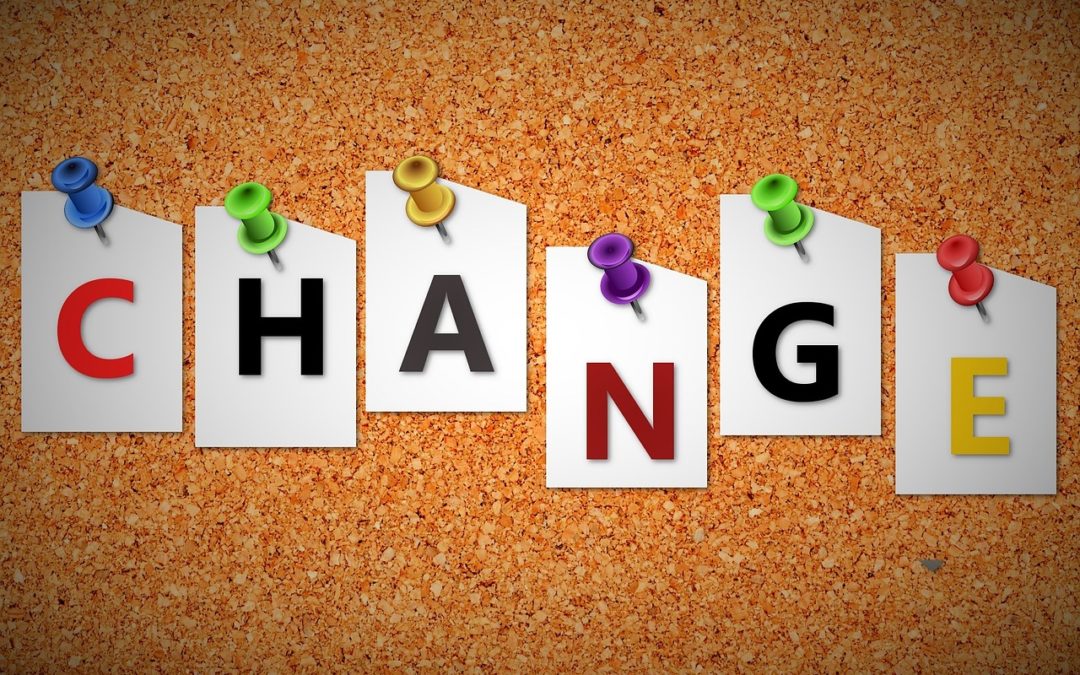
by Marcia Davis-Dawkins | Jan 23, 2019 | Education, Kids, Parents, Teachers
Embracing Change

By Dr. Marcia Davis-Dawkins
In one of my recent blogs, “Change Our Positions”, I wrote about change and it seems as if I am revisiting because as we evolve we need to have change. Change can sometimes be difficult for most people. What then is the meaning of change? Change as defined by the dictionary, is “to make or become different.”
Change for some means moving forward and forgetting things that are behind. For many, the change of a new year means making a resolution to do better in life – whether it’s losing weight, changing your way of eating or simply doing things differently primarily to make life better. When for instance, there is a divorce, there is also change and a new way of life for both persons involved. At times it can also mean change in location for one or both parties. If there are children involved, they have to deal with change of being in a single parenting home or moving to another school.
For the most part, change is usually not easy, but the idea is to pick up the pieces and start over, but don’t dwell on the past or what could have been. Change can mean trying new things, as well as growth, because you are learning new things and setting new goals and aspirations. Change means switching from one thing to another, but it also means that you find out about yourself with regards to what you can tolerate and in turn grow through the learning.
Fear
There are many people who fear change because they are comfortable with what they are doing or at the level they are. This lack of movement towards change can hinder progress to move forward. Since we always seek to evolve and grow higher, change is a necessary force that we must encounter. Many times the change may cause us to come to a roadblock, but we have to find ways to get over or around the obstacles so we can be elevated. And if and when we pass the roadblock, we gain strength. Just imagine the joy when we realize that we surpass the trials and tribulations and how satisfying to know that we did it! This definitely is a booster to our self-confidence and now we can believe more in ourselves. This sudden rush of joy could also encourage us to want to climb higher and higher. There is a little song that we use to sing as youngsters that said, “It only takes a spark, to get the fire going and soon all those around could warm up in it’s glowing.” This joy will become contagious because we want to spread it all around. This positive vibe will keep on going and soon there will be no stopping the elevation, as we won’t want to stop learning. Change definitely means learning new lessons and discovering things about us. Some of us make changes is our lives with the belief that like the old adage says, “flowers tomorrow are in seeds planted today.”
What role does change play in education?
Like so many other things, change is necessary for growth. Students are going to need skills in their future beyond the academic achievement goals that have been the focus of the past. To help them prepare for that future, they must become adaptable learners. That means that change is not only necessary, but inevitable. Change WILL happen, so why not embrace it? Teachers are sometimes resistant to do that because often they view change as being done solely for the sake of change. Unfortunately, sometimes that is the truth. Veteran teachers have seen changes initiated only to be abandoned because they did not prove fruitful. But “meaningful change” goes beyond that, leads to something better and should be welcomed
 Letting go of what we find most familiar and comfortable is difficult, but stepping out of that comfort zone enables the potential for fulfillment and reward. Innovation and change will only be successful if we believe there just might be a better way. So, focus energy not on fighting for the old, but on building the new. Our students cannot become who they want to be by remaining what they are.
Letting go of what we find most familiar and comfortable is difficult, but stepping out of that comfort zone enables the potential for fulfillment and reward. Innovation and change will only be successful if we believe there just might be a better way. So, focus energy not on fighting for the old, but on building the new. Our students cannot become who they want to be by remaining what they are.
Change Our Positions!
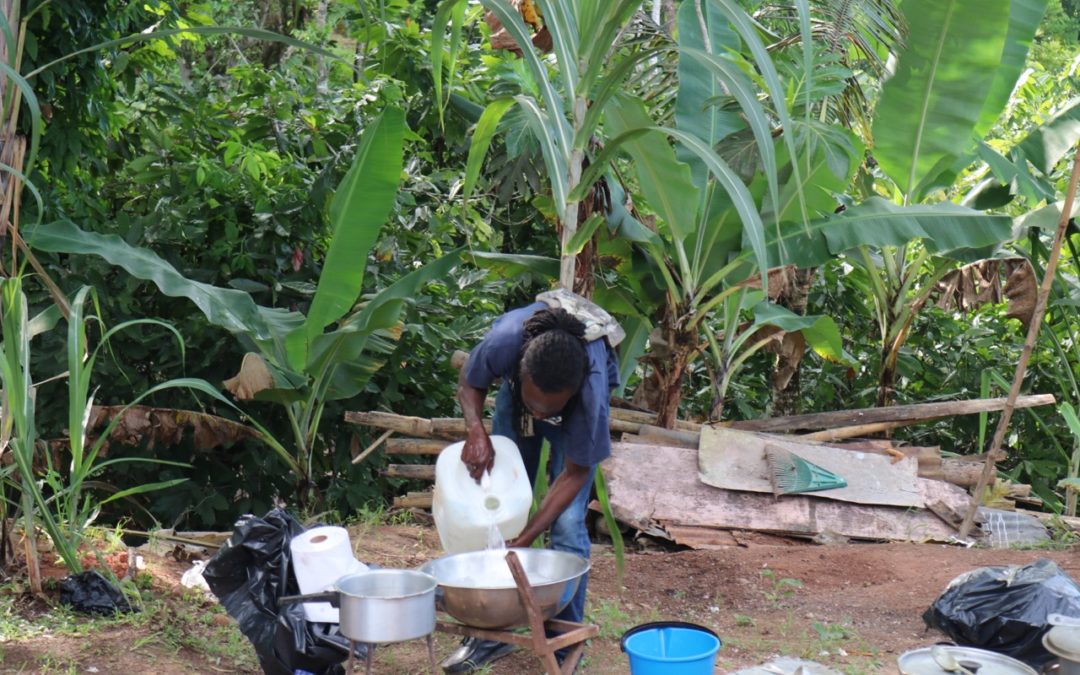
by Marcia Davis-Dawkins | Jan 8, 2019 | Education, Kids, Parents, Teachers
Can We Forget Where We Come From?

By Dr. Marcia Davis-Dawkins
I was recently privileged to be a part of our family reunion where we went back to our roots where our maternal parents and grandparents lived. It was really different because there was no running water. However we got water from the nearby spring. Being there was very nostalgic since I lived there at one part of my primary years. During my quiet times, I wondered how we survived without some of the basic things in life – running water or electricity. Vivid memories flooded my mind including having to go to the spring to get water to do many essential things that many may take for granted today. I thought of going to the river to wash clothes and at times bathing. As a farmer, my grandfather would plant various crops like sugar cane, oranges, coconuts, coco, coffee, ginger, yams of varying names and textures. I was fortunate to witness the planting as well as the harvesting of these crops. Some of the crops were cash crops while others were for our consumption. There were also livestock, including chickens, cows, goats and pigs. My grandfather at times would slaughter various livestock and sell to the neighbors in the community.
There are many people who would not like to remember where their origins are because the memories are so painful and they would prefer to bury them. Quite frankly, I understand their reasoning, but for me they’re my roots and the experiences helped and molded me into who I am today. And I would not say that life was great and stress-free. I am sure that they are people who would say that they are now glad they are out of the situation that they grew up in and would not want to go back now that they are successful. They might be irritated they had to experience the poverty and dare I say, the humble beginnings. Some of the memories are so cemented into my mind that I can’t forget them whether good or bad. I am truly convinced that they made me stronger and weren’t meant to demean my humble beginnings. I guess when I was sent to spend time with my grandfather, during my primary years to teenage years, I didn’t think those were wonderful years. But now that I am older, I have learned to appreciate those foundational years. I know that my grandfather was a vital and invaluable part of my upbringing. As such, I have learned to never forget where I came from, but never to let it hold me back from where I want to go.
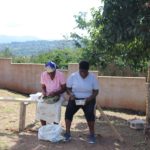 Some of us (including some family members) have sought ways to remove or refrain from remembering the struggle of their childhood days – especially if they see them as too painful or violent for that matter. I can’t say I blame them but can say, “different strokes for different folks”. Still there are others who might associate their childhood days as confusing, lonesome, or filled with rejection and they prefer to escape from or drown those memories.
Some of us (including some family members) have sought ways to remove or refrain from remembering the struggle of their childhood days – especially if they see them as too painful or violent for that matter. I can’t say I blame them but can say, “different strokes for different folks”. Still there are others who might associate their childhood days as confusing, lonesome, or filled with rejection and they prefer to escape from or drown those memories.
Somehow as an educator, I have been thinking of how the students would eventually think about the impact that I have made on my students’ lives. It is my hope that they will never forget me as a motivator and that I played a vital and invaluable part in their lives. I really would like them to feel that even though the lessons and experiences were sometimes difficult they will help to make them who they will be in the future. I have often thought that through lessons I can share part of my early childhood stories (where appropriate) so students can identify with me and feel that they are not alone.
Since the teacher wears many hats and one of them is that of providing a home (in the classroom) for students, then the hat includes making the classroom a home where the heart is. No matter what one accomplishes, one must never forget how one began. That enables one to have enough confidence to hold his/her head up high, but also enough humility not to look down at others. As Ralph Waldo Emerson stated, “A great man is always willing to be little.”
Education and Success
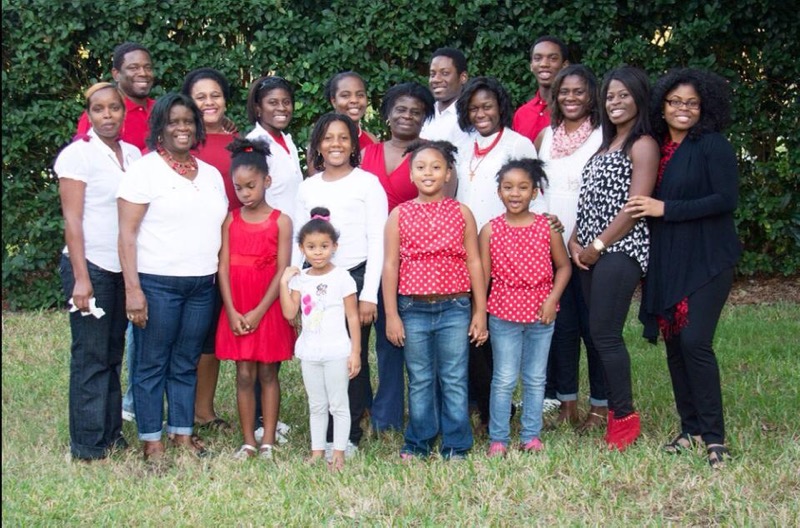
by Marcia Davis-Dawkins | Dec 18, 2018 | Education, Kids, Parents, Teachers
Family is Everything

By Dr. Marcia Davis-Dawkins
Holidays are centered around family. I have always been a person who loves and enjoys being with family. When I was growing up, one of my friends said that “I wasn’t a family person” simply because I didn’t grow up with my mother and father like most people do. I don’t think I ever got over that statement. In fact, a few years ago, I sought clarification from the friend only to be told that he was immature and never understood me. For the record, I grew up with my aunts, who were both teachers and might have steered me in the direction of being an educator. Most people don’t know or understand the reasons children don’t live with their parents and are quick to pass judgments. But does that mean that they are not living in a family or that they don’t desire a “traditional family” life? How do we define ‘family’? Most people define a ‘traditional family’ as a married mother and father along with biological children living in the same house. We might also say that was once upon a time – since there are so many new ways to define a family these days. However we define family, it should include being supportive, understanding – being there to help with homework, attend school events among other things.
Never Underestimate the Power of Family
Now that I am older I can say I was a tad bit embarrassed to admit that I was not part of a “traditional” family and even more embarrassed that it was a single parent family. It seemed almost like a crime or a sin to me! With age comes wisdom, however, and I have come to realize that my family may not have had it all together, but together we had it all. Despite missing the conventional cast of characters, my family was there for me through the best of times and the worst of times. Many things change during the course of your lifetime, such as friends, jobs, your morals, your style, but the one constant is family. They provide for your emotional and physical needs without you demanding it and stand by you. Their presence ensures that you will be loved for the rest of your life, no matter what.
 I often wondered how my students felt growing up in a single family home, especially since for me I had the experience of my friends growing up in the traditional married parents family. Because of that I always empathize with my students who would tell me secretly that that lived with their aunts, grandma or others who were not mother or father. I always felt the need to assure them that it was okay and that it was not the end of the world. It is also such a sensitive topic when the situation is that the parents are deceased and the lessons are centered around family discussions or activities, such as when we are reading Sarah, Plain and Tall by Patricia MacLachlan, where the mom in the story is deceased. The story’s theme explores loneliness, abandonment, and coping with change. Then there is that time when it’s Mother’s Day or Father’s Day and the activity is to make something for the parent, who unfortunately, is deceased. As
I often wondered how my students felt growing up in a single family home, especially since for me I had the experience of my friends growing up in the traditional married parents family. Because of that I always empathize with my students who would tell me secretly that that lived with their aunts, grandma or others who were not mother or father. I always felt the need to assure them that it was okay and that it was not the end of the world. It is also such a sensitive topic when the situation is that the parents are deceased and the lessons are centered around family discussions or activities, such as when we are reading Sarah, Plain and Tall by Patricia MacLachlan, where the mom in the story is deceased. The story’s theme explores loneliness, abandonment, and coping with change. Then there is that time when it’s Mother’s Day or Father’s Day and the activity is to make something for the parent, who unfortunately, is deceased. As  educators we have to be mindful of these situations and know our students and know their backgrounds and ensure that we plan our lessons carefully. Family is everything, but we cannot allow our students to feel left out. We should make them feel like our classroom is a family setting and help them to cope through the difficult times that they may encounter. We cannot replace blood relatives, but can be that “family” that is a valuable resource for helping them through onerous times. Knowing this support system is available to them offers the security they may be lacking at home. Never underestimate the power of “family,” the most important gift in our lives.
educators we have to be mindful of these situations and know our students and know their backgrounds and ensure that we plan our lessons carefully. Family is everything, but we cannot allow our students to feel left out. We should make them feel like our classroom is a family setting and help them to cope through the difficult times that they may encounter. We cannot replace blood relatives, but can be that “family” that is a valuable resource for helping them through onerous times. Knowing this support system is available to them offers the security they may be lacking at home. Never underestimate the power of “family,” the most important gift in our lives.
True Friends Never Part



 Since one of the many hats that we wear as educators is to actually teach, I say posting certain quotes in our classroom can evoke certain teachable moments. One of my goals continues to be spreading a key foundational core value by encouraging students to speak the truth and speak it ever. In a world where being deceptive sometimes rears it ugly head, it is best that we help students to carry a moral standard of speaking the truth all the time.
Since one of the many hats that we wear as educators is to actually teach, I say posting certain quotes in our classroom can evoke certain teachable moments. One of my goals continues to be spreading a key foundational core value by encouraging students to speak the truth and speak it ever. In a world where being deceptive sometimes rears it ugly head, it is best that we help students to carry a moral standard of speaking the truth all the time.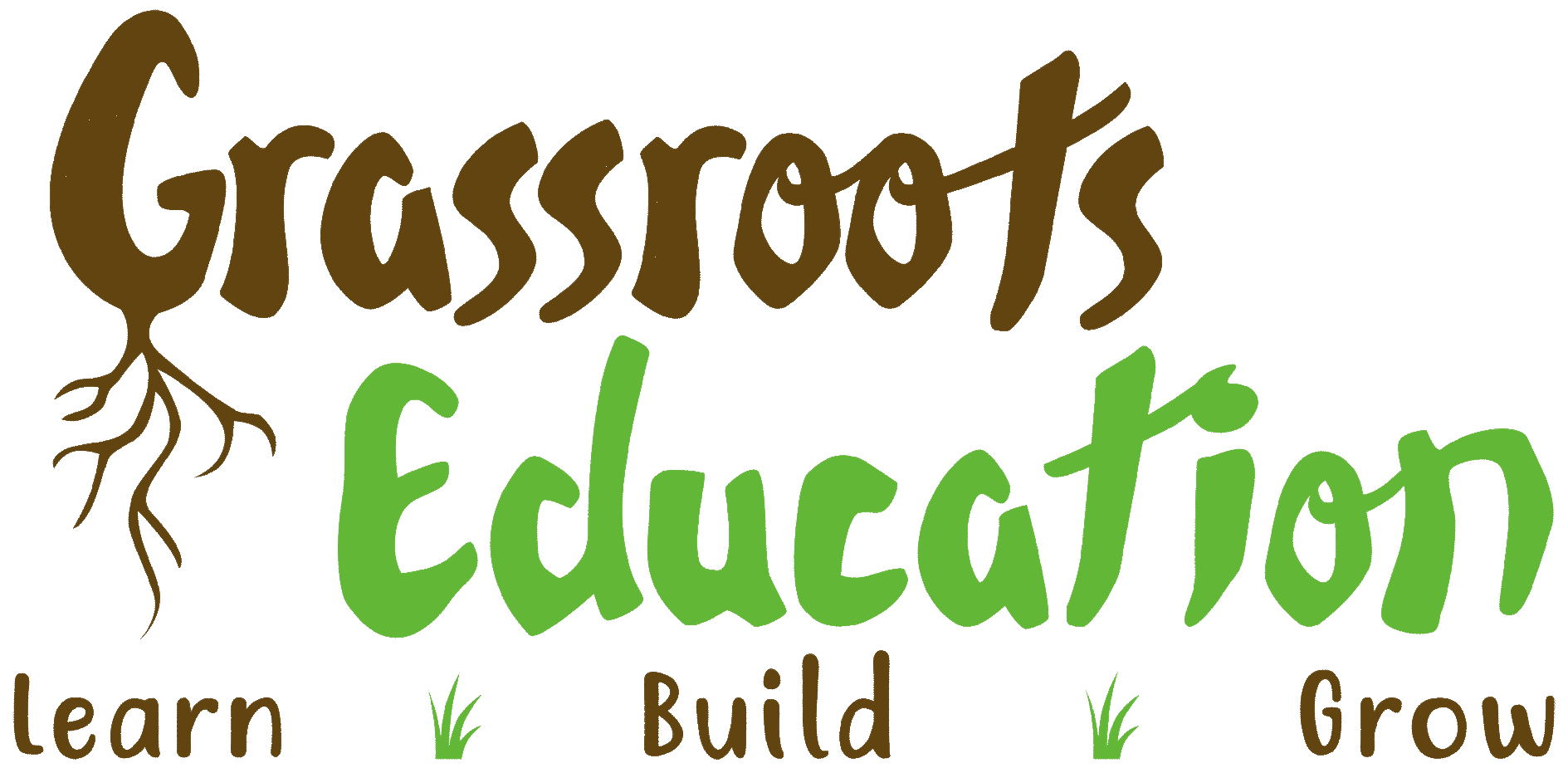

 and take care of my body on Earth Day. Whether you might see this has a mere coincidence or not, things just seemed to roll into place and as I walked and talked with a friend, and I realized that again, “nothing happens without a reason.” This time the friend encouraged me to watch a movie, which I promised to watch and I was true to my word. The movie entitled the
and take care of my body on Earth Day. Whether you might see this has a mere coincidence or not, things just seemed to roll into place and as I walked and talked with a friend, and I realized that again, “nothing happens without a reason.” This time the friend encouraged me to watch a movie, which I promised to watch and I was true to my word. The movie entitled the  It sent home another message that I had read from Hebrews 13:16, (NIV) “Do not neglect to do good and to share what you have, for such sacrifices are pleasing to God.” This further encouraged me to put into action my dream of helping students from my homeland Jamaica, who are less fortunate and very talented, and would also appreciate the extra assistance to push them further so they can run with their dreams, go on and, who knows, maybe build windmills like William. Give the students an opportunity to, as they say, “Chase windmills,” the glorious journey of chasing ideas bigger than themselves and remaining optimistic in the face of cynicism!
It sent home another message that I had read from Hebrews 13:16, (NIV) “Do not neglect to do good and to share what you have, for such sacrifices are pleasing to God.” This further encouraged me to put into action my dream of helping students from my homeland Jamaica, who are less fortunate and very talented, and would also appreciate the extra assistance to push them further so they can run with their dreams, go on and, who knows, maybe build windmills like William. Give the students an opportunity to, as they say, “Chase windmills,” the glorious journey of chasing ideas bigger than themselves and remaining optimistic in the face of cynicism!
 By Dr. Marcia Davis-Dawkins
By Dr. Marcia Davis-Dawkins Also for adults, loneliness can come because of a lost spouse or loved one and things seems like your world in about to end because the person is grieving. For some, it can be a sense of confusion. Some might question themselves, even question God, or “Why did this happen?” “How will I survive without my spouse?” “Where do I stand?” “What will I do in the weeks, months, years to come without my spouse?” These, of course, are legitimate inquiries without immediate answers, but the interesting thing is that there is usually help, whether through family/friends support or from counselors. Whatever the situation, fear of being alone or the feeling that we will never make it – there is always hope.
Also for adults, loneliness can come because of a lost spouse or loved one and things seems like your world in about to end because the person is grieving. For some, it can be a sense of confusion. Some might question themselves, even question God, or “Why did this happen?” “How will I survive without my spouse?” “Where do I stand?” “What will I do in the weeks, months, years to come without my spouse?” These, of course, are legitimate inquiries without immediate answers, but the interesting thing is that there is usually help, whether through family/friends support or from counselors. Whatever the situation, fear of being alone or the feeling that we will never make it – there is always hope. We might be lonely simply because people have disappointed us so much that we just want to be by ourselves and enjoy our own company. At times, we go through a period of loneliness because this time is needed for reflecting where we can assess ourselves and set new goals. Frankly speaking, we shouldn’t fight this aloneness, but embrace it and develop something that you might never have. It could be a time where we can get to know ourselves. At whatever cost and at whatever stage in life we are, loneliness is real and it affects our psyche. Whether we want to admit it or not, it can play a big part of our lives (young or old). It is no wonder why what
We might be lonely simply because people have disappointed us so much that we just want to be by ourselves and enjoy our own company. At times, we go through a period of loneliness because this time is needed for reflecting where we can assess ourselves and set new goals. Frankly speaking, we shouldn’t fight this aloneness, but embrace it and develop something that you might never have. It could be a time where we can get to know ourselves. At whatever cost and at whatever stage in life we are, loneliness is real and it affects our psyche. Whether we want to admit it or not, it can play a big part of our lives (young or old). It is no wonder why what 

 Letting go of what we find most familiar and comfortable is difficult, but stepping out of that
Letting go of what we find most familiar and comfortable is difficult, but stepping out of that 

 Some of us (including some family members) have sought ways to remove or refrain from remembering the struggle of their childhood days – especially if they see them as too painful or violent for that matter. I can’t say I blame them but can say, “different strokes for different folks”. Still there are others who might associate their childhood days as confusing, lonesome, or filled with rejection and they prefer to escape from or drown those memories.
Some of us (including some family members) have sought ways to remove or refrain from remembering the struggle of their childhood days – especially if they see them as too painful or violent for that matter. I can’t say I blame them but can say, “different strokes for different folks”. Still there are others who might associate their childhood days as confusing, lonesome, or filled with rejection and they prefer to escape from or drown those memories.


 I often wondered how my students felt growing up in a single family home, especially since for me I had the experience of my friends growing up in the traditional married parents family. Because of that I always empathize with my students who would tell me secretly that that lived with their aunts, grandma or others who were not mother or father. I always felt the need to assure them that it was okay and that it was not the end of the world. It is also such a sensitive topic when the situation is that the parents are deceased and the lessons are centered around family discussions or activities, such as when we are reading
I often wondered how my students felt growing up in a single family home, especially since for me I had the experience of my friends growing up in the traditional married parents family. Because of that I always empathize with my students who would tell me secretly that that lived with their aunts, grandma or others who were not mother or father. I always felt the need to assure them that it was okay and that it was not the end of the world. It is also such a sensitive topic when the situation is that the parents are deceased and the lessons are centered around family discussions or activities, such as when we are reading  educators we have to be mindful of these situations and know our students and know their backgrounds and ensure that we plan our lessons carefully. Family is everything, but we cannot allow our students to feel left out. We should make them feel like our classroom is a family setting and help them to cope through the difficult times that they may encounter. We cannot replace blood relatives, but can be that “family” that is a valuable resource for helping them through onerous times. Knowing this support system is available to them offers the security they may be lacking at home. Never underestimate the power of “family,” the most important gift in our lives.
educators we have to be mindful of these situations and know our students and know their backgrounds and ensure that we plan our lessons carefully. Family is everything, but we cannot allow our students to feel left out. We should make them feel like our classroom is a family setting and help them to cope through the difficult times that they may encounter. We cannot replace blood relatives, but can be that “family” that is a valuable resource for helping them through onerous times. Knowing this support system is available to them offers the security they may be lacking at home. Never underestimate the power of “family,” the most important gift in our lives.